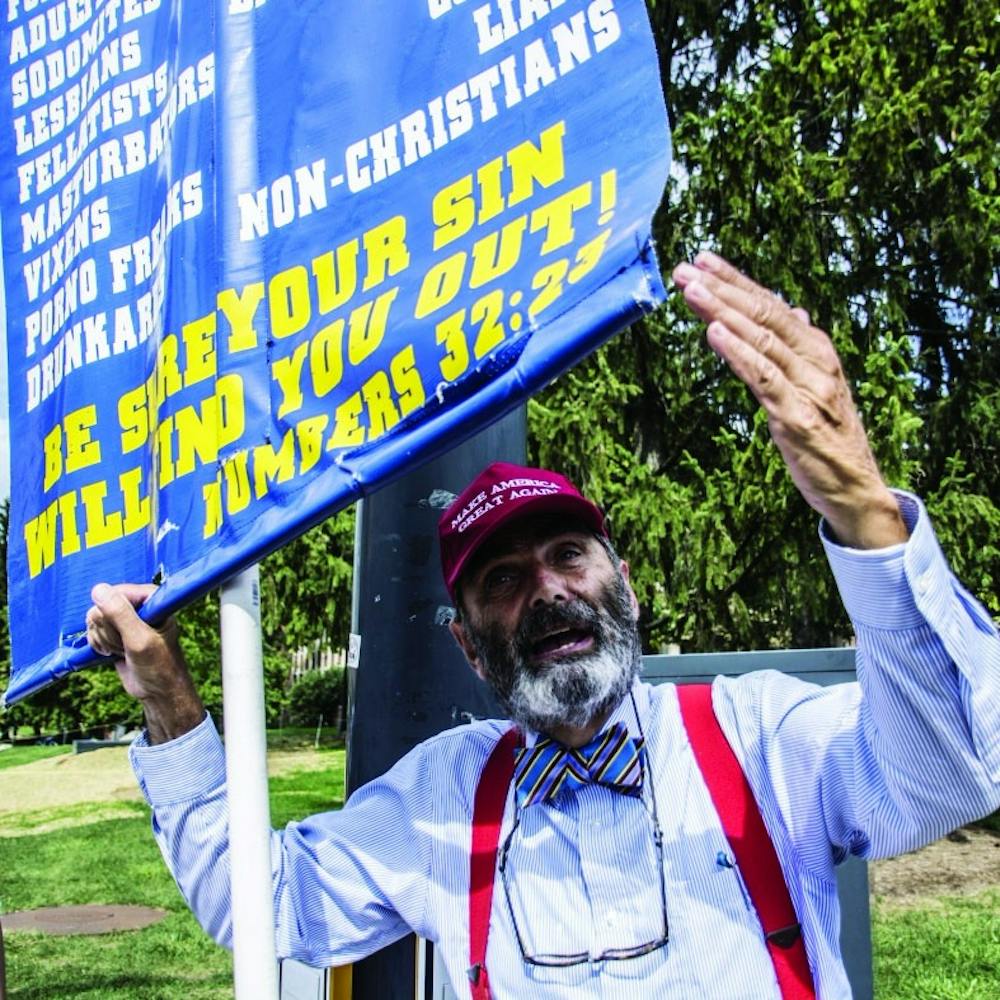On Monday, executives from Facebook, Snapchat and other technology-oriented organizations announced they will help the Anti-Defamation League reduce online hate speech by developing guidelines.
These guidelines won’t infringe upon the freedom of speech because Facebook and Snapchat are not government entities; therefore, the guidelines aren’t censoring speech, but creating a safer online environment for free speech.
While the Constitution doesn’t explicitly define what is or isn’t protected by the freedom of speech, the Supreme Court ruled in Cohen v. California in 1971 that the First Amendment not only protects speech, but communication as well.
According to “Guide to Free Speech on Campus” by the Foundation for Individual Rights in Education (FIRE), “Speech has been broadly defined as expression that includes, but is not limited to, what you wear, read, say, paint, perform, believe, protest, or even silently resist.”
In addition, FIRE says speech can be an activity.
“‘Speech activities’ include leafleting, picketing, symbolic acts, wearing armbands, demonstrations, speeches, forums, concerts, motion pictures, stage performances, remaining silent, and so on.”
Director of Student Rights and Community Standards Mike Gillilan, agrees that unless the speech begins to threaten a group, it’s protected.
“Hate speech, in general, like it or not, at least in a public space, on a public campus is protected speech. However repulsive and vile it might be, however racist, however homophobic, however misogynistic it might be, in the proper space, public space like a demonstration would be protected speech,” Gillilan said.
However, the term “free speech” is inaccurate to Gillilan, because all speech comes with a cost.
“But hate speech has a cost, but it is protected, and so perhaps as it’s often said, the best weapon against hate speech is better speech and more of it,” Gillilan said. “But again, that doesn’t solve all the problems of hate speech, it’s limited.”
For University Police Chief Jim Duckham, speech on campus, hate speech or otherwise, has to be a neutral topic.
“From the police perspective, we have to take a content-neutral approach, and the courts have been pretty clear on that,” Duckham said.
For Duckham, the prime example of a “content-neutral” approach is the photo of the African American police officer patrolling the “Unite the Right” rally in Charlottesville, Virginia.
“That’s kind of like what we do here at our events. That’s our mentality. We’re content neutral. We make sure that the event goes off the way it’s supposed to go,” Duckham said.
Ball States’ Student Bill of Rights and Responsibilities doesn’t provide any information on hate speech, but it states students are allowed the same rights as other citizens, including their First Amendment freedoms.
While the university hasn’t dealt with a direct violation of the freedom of speech recently, Indiana’s hate crime policy doesn’t consider hate speech a crime.
As one of the five states without hate crime legislation, Indiana prosecutors can’t charge someone with committing a hate crime, even if hate speech becomes violent.
When Jason Gardner was attacked in New Haven, Indiana, in June 2017, prosecutors charged it as an assault, despite the presence of hate speech before the attack.
Indiana lawmakers are working to propose hate crime legislation in 2018, but as of now, hate crimes — incited by hate speech or otherwise — are legal.
Contact Mary Freda with comments at mafreda@bsu.edu or on Twitter at @Mary_Freda1.




